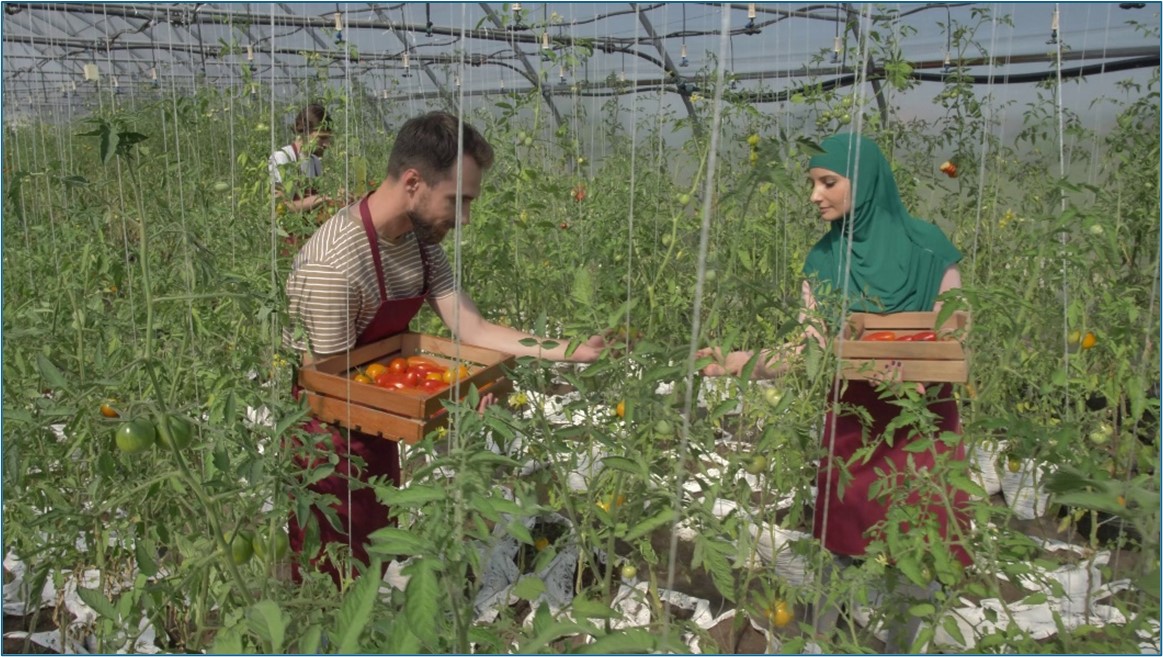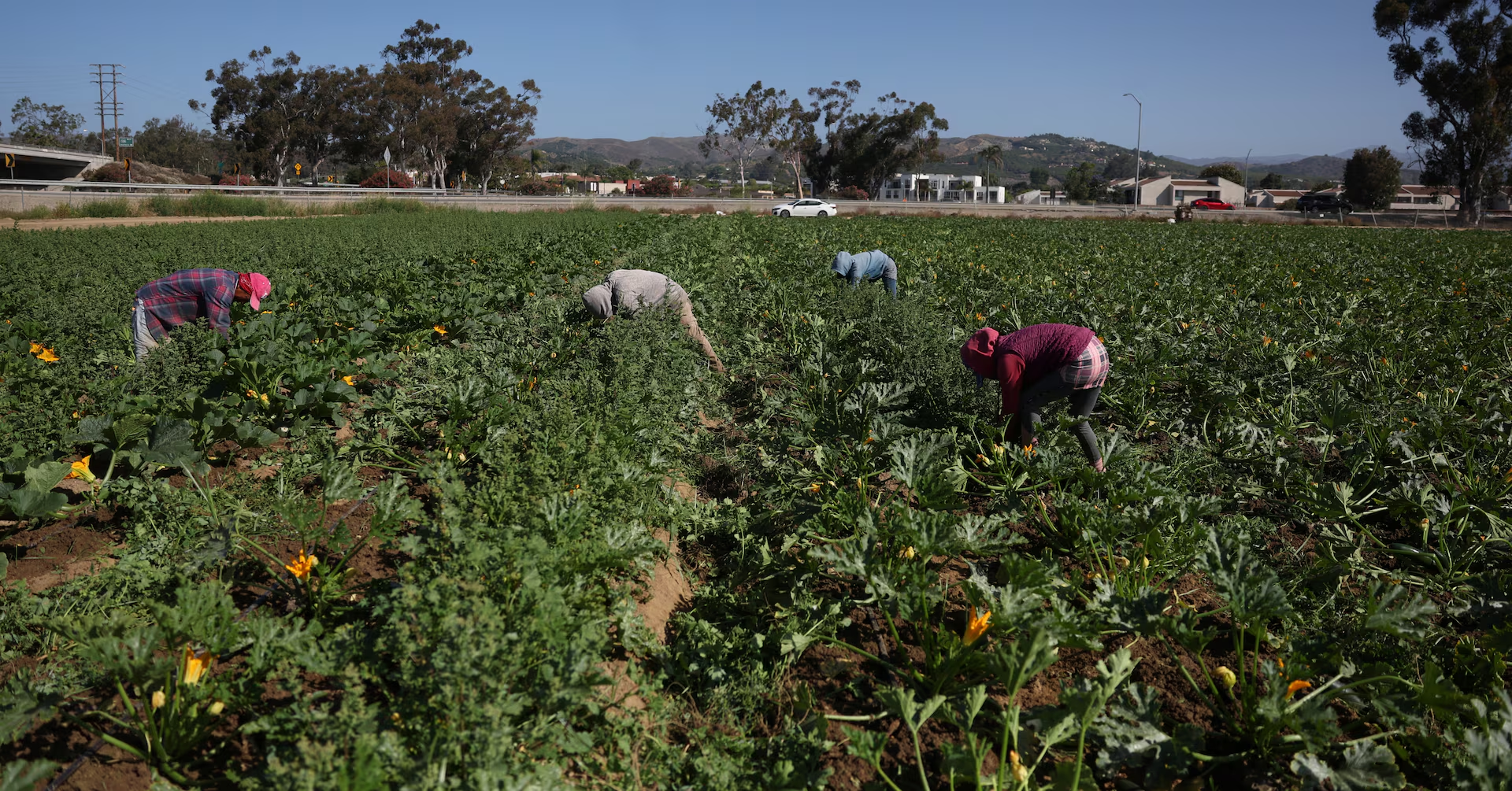In a chilling reminder of the human cost of stringent immigration policies, recent raids conducted by U.S. Immigration and Customs Enforcement in California"s agricultural heartland have led to a staggering 70 percent reduction in farm laborers. This exodus is not merely a statistic; it is a catastrophic blow to an industry responsible for producing billions of dollars worth of fruit and vegetables. As farmers scramble to cope, the implications for the food supply chain are dire.
Raids Leave Fields Empty
Farmers in Ventura County, a key agricultural region, have reported severe staffing shortages following the ICE operations earlier this month. Lisa Tate, a sixth-generation farmer, revealed that without workers, crops are left unpicked and will spoil within days. "If 70 percent of your workforce doesn"t show up," she stated, "70 percent of your crop doesn"t get picked and can go bad in one day." This stark reality underscores the essential role immigrant labor plays in California"s agricultural economy.
Economic Impact on Farmers
California"s farms and ranches generated nearly $60 billion in agricultural sales in 2023, according to the California Department of Food and Agriculture. With a significant portion of this labor force being undocumented immigrants, the economic ramifications of these raids are alarming. Douglas Holtz-Eakin, a former director of the Congressional Budget Office, acknowledged that losing such a workforce could lead to price hikes for consumers. "This is bad for supply chains, bad for the agricultural industry," he warned.
\n\n
California Helps Ventura County Agricultural Workers Recently ...
Fear Grips the Workforce
For many immigrant workers, the fear instilled by these raids is palpable. Two workers who spoke anonymously to Reuters expressed their anxiety about returning to the fields. One, a 54-year-old man who has worked in U.S. agricultural fields for three decades, lamented, "If they show up to work, they don"t know if they will ever see their family again." This fear is not unfounded; the threat of deportation looms large, affecting even those who are legally authorized to work.
Community Responses and Adaptations
Despite the fear, some community groups report that workers continue to return to the fields out of economic necessity. Organizations have noted that attendance may dip temporarily after a raid, but many workers feel they have no alternative sources of income. To mitigate risk, workers are taking precautions, such as carpooling with individuals who have legal status or sending U.S. citizen children on errands to lessen visibility.
\n\n
Immigration raids leave crops unharvested, California farms ...
Political Acknowledgment of the Crisis
Even President Trump has acknowledged the consequences of these raids for the agricultural sector. He noted on his Truth Social account that these operations are "taking very good, long-time workers away" from farms and hotels, with jobs becoming increasingly impossible to fill. Despite this recognition, no tangible policy changes have been enacted to alleviate the crisis, leaving farmers in a precarious position as they face a critical harvest season.
As the Biden administration grapples with these ongoing challenges, the reality remains that immigrant labor is not just a matter of economic necessity but a fundamental component of American agriculture. The current climate of fear and uncertainty, exacerbated by ICE actions, threatens not only the livelihoods of farmers but also the food security of the entire nation.

![[Video] Federal officers deploy sting balls and flash grenades at Whipple Building](/_next/image?url=%2Fapi%2Fimage%2Fthumbnails%2Fthumbnail-1768340555229-vhfcc-thumbnail.jpg&w=3840&q=75)
![[Video] Crowd-control weapons used in Minneapolis as anti-ICE protesters attack police vehicle](/_next/image?url=%2Fapi%2Fimage%2Fthumbnails%2Fthumbnail-1768336302231-akxf7s-thumbnail.jpg&w=3840&q=75)

![[Video] Protests erupt in Minneapolis after ICE detains teenager, multiple arrests made](/_next/image?url=%2Fapi%2Fimage%2Fthumbnails%2Fthumbnail-1768331835371-z9ylqg-thumbnail.jpg&w=3840&q=75)


![[Video] Gunfire between Iraqi security forces and Sadr militias in Baghdad](/_next/image?url=%2Fapi%2Fimage%2Fthumbnails%2Fthumbnail-1768343508874-4redb-thumbnail.jpg&w=3840&q=75)
